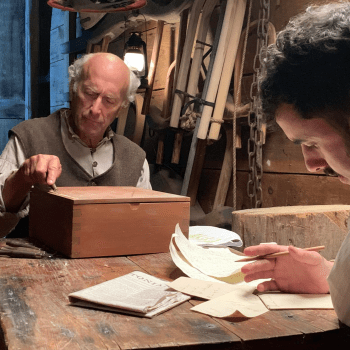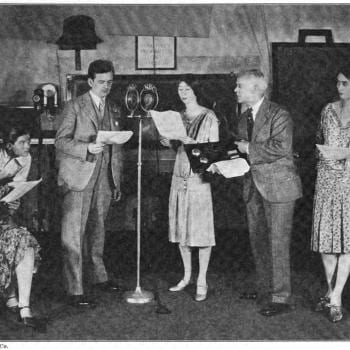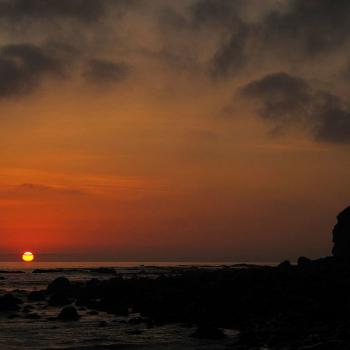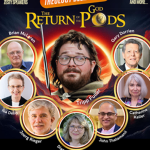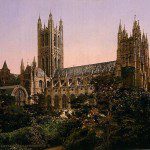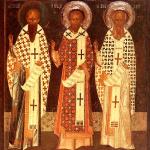
(Image borrowed from the website of the Neal A. Maxwell Institute for Religious Scholarship. I hope that they won’t object.)
1. Come, lay his books and papers by, he shall not need them more; the ink shall dry upon his pen, so softly close the door. His tired head, with locks of white, and like the winter’s sun, hath lain to peaceful rest tonight,—The teacher’s work is done.
2. His work is done; no care tonight his tranquil rest shall break; sweet dreams, and with the morning light, on other shores he’ll wake. His noble thoughts; his wise appeal, his works that battles won;—But God doth know the loss we feel,—the teacher’s work is done.
3. We feel it, while we miss the hand that made us brave to bear; perchance in that near-touching land his work did wait him there. Perchance, when death its change hath wrought, and this brief race is run, his voice again shall teach, who thought the teacher’s work was done.
My wife and I learned yesterday that our longtime friend Thomas F. Rogers has died. I believe that he passed away yesterday morning; his wife, Merriam, had already died in September 2022. They are the parents of seven children.
Tom earned a bachelor’s degree from the University of Utah, a master’s degree in Slavic languages and literatures from Yale University (combined with studies at the Yale School of Drama), and a doctorate in Russian language and literature from Georgetown University, as well as a certificate in the teaching of Russian from Moscow State University and a certificate from the Theatre Workshop at the University of Wroclaw in Poland. He also took time to study Sanskrit for a while in India and Arabic in Syria.
Before joining the faculty at Brigham Young University to teach Russian and Russian literature, Tom taught at Howard University in Washington, D.C. and at the University of Utah. After his retirement, he spent a year in Beijing as part of the BYU China Teachers Program.
Having served a full-time mission to Germany as a young man, he presided later in life over the Russia St. Petersburg Mission (1993–1996), and then served as a temple missionary and sealer at the Stockholm Sweden Temple (2004–2005) and as an ordinance worker and sealer in the Bountiful Utah Temple. For several years after 2007, he functioned as a traveling patriarch, giving blessings to Saints in the Europe East Area.
Importantly, too, Tom was a prolific author, a significant figure in the development of a distinctively Latter-day Saint literature . (In 2002, the Association of Mormon Letters gave him its Lifetime Service Award.) He wrote several books, including ‘Superfluous Men’ and the Post-Stalin ‘Thaw’ (1972), God’s Fools: Four Plays (1983), Myth and Symbol in Soviet Fiction (1992), Huebener and Other Plays (1992), A Call to Russia: Glimpses of Missionary Life (1999), and a 2017 collection of essays in the Maxwell Institute’s Living Faith series, Let Your Hearts and Minds Expand: Reflections on Faith, Reason, Charity, and Beauty. He even translated Panchev’s Random Functions and Turbulence from Russian into English.
He was passionate about theater and drama, not only directing and acting himself but authoring such plays as The Second Priest, The Gentle Barbarian, Frére Lawrence, Charades, Fire in the Bones (probably the first literary treatment of the Mountain Meadows Massacre), and First Trump. He has adapted many books into plays, including Judgment Day (from Flannery O’Connor), Crime and Punishment (from Fyodor Dostoyevsky), and Intruder in the Dust (from William Faulkner). He also apparently created a version of Anton Chekhov’s The Seagull that I have not seen.
He did not shy away from the thoughtful consideration of difficult subjects. Quite the contrary. Almost certainly, his most famous single work has been his 1979 play Huebener, based on the difficult true story of a young German Latter-day Saint who was executed by the Nazis at the age of seventeen for his vocal opposition to the Hitler regime.
In recent years, Tom had begun to devote his strong creative and artistic inclinations to painting, even hosting an exhibit in Bountiful, Utah, that we attended.
Tom was the director of the Honors Program at Brigham Young University during the time that I spent there after my mission, and that’s when we first became friends. (He was very encouraging to me.) My wife’s first close involvement with him was even earlier than mine. In 1972, her first year as a student at BYU, she was the assistant director (to Charles Whitman) of a production of Chekhov’s Uncle Vanya in which Tom Rogers played the title role. Later, she directed a student production at BYU of an adaptation of Flannery O’Connor’s “A Good Man is Hard to Find” that Tom had created. Our first date was to a fireside at Tom and Merriam’s home in Provo.
Tom and Merriam were longtime members of the small monthly reading group to which we’ve belonged for almost four decades now — which is officially and affectionately known as the Gadianton Polysophical Marching and Chowder Society. He could sometimes be very passionate in those discussions, too. And, as a matter of fact, he was scheduled to lead the discussion this coming Sunday evening. My wife and I were far and away the youngest members of the group when we were invited to join and, in recent years, the relentless onward rolling of time has begun to cut significantly into our numbers. Tom is the latest of a lengthening group of valued and insightful friends — e.g., Hal Moore, Davis Bitton, Cherry Bushman Silver, Francine Bennion, Todd Britsch, John Sorenson, George Bennion, and several others — to whom we’ve been obliged to bid farewell.
Finally, here’s the link to a relatively brief essay that he wrote at my request for my Mormon Scholars Testify website — now Latter-day Saint Scholars Testify — back in 2009: “Hooks.” I think that, even if you never knew him, it will give you at least some sense of Tom Rogers.
Thou shalt live together in love, insomuch that thou shalt weep for the loss of them that die, and more especially for those that have not hope of a glorious resurrection.
And it shall come to pass that those that die in me shall not taste of death, for it shall be sweet unto them. (Doctrine and Covenants 42:45-46)
We are confident that Tom and Merriam and others that they have known and loved are now enjoying a sweet reunion in a place where pain and illness are no more.




